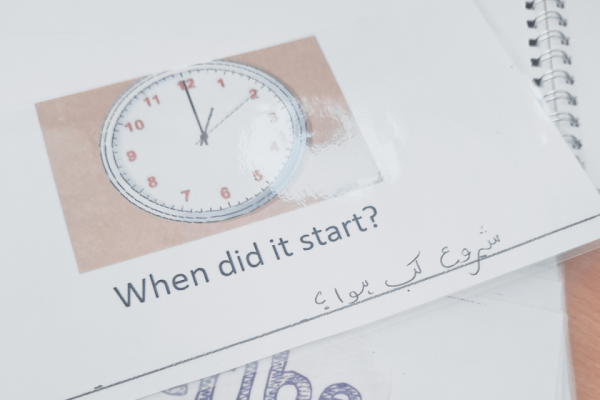
University of Bolton, Deane Road, Bolton. BL3 5AB
Tel:
Email:


“At the University of Bolton, we take great pride in providing a quality, supportive learning environment for our students.”
Professor George E Holmes DL | President & Vice Chancellor
“...tutors are very supportive and you’re not just a student ID number, at this university you are an individual with a name.”
Ellisse Vernon | BSc (Hons) Adult Nursing
Back to menu
Back to menu
Study with an Off-Campus Partner
Back to menu
Back to menu
University of Bolton, why we are the right choice
Location - Bolton, Greater Manchester

19/02/2025
When you talk to Pip Page, our Lecturer in Paramedic Science at the School of Clinical & Biomedical Sciences for the University of Bolton, it’s obvious how passionate she is about providing excellent standards of care. That’s why our focus on creative patient and paramedic communication matters so much. As a paramedic, you don't know what you’re walking into and it’s an area where communication is a huge barrier. Paramedics regularly support the elderly and those with dementia, the very young, people from other cultures, those with hearing loss and intoxicated persons. And it’s unlike other medical professions where appointments are made and reasonable adjustments are put in place in advance. So, in this piece, learn how students like you are taught to think creatively and approach communication from all angles to improve patient outcomes in the field.
According to the Bolton team, communication challenges are common in as many as 60% of all callouts! That’s because paramedics are responding to people in heightened distress who may already have some communication barriers, even in a normal setting. Building a rapport, understanding what’s going on and being able to make a carefully weighed assessment is critical. But that’s hard if the person can’t understand you properly. So, at Bolton, we’ll teach you to demonstrate patience, engagement and willingness to support patients with both your words and your attitude & tone. During exams, you’ll practice overcoming these barriers to help your patients feel empowered. And, as autonomous practitioners, we’ll teach you to get creative and find or make tools that will ensure you’re a more efficient communicator (within the rules and regs, of course).
Older people may be more likely to downplay injuries or be medication-adverse. You could encounter patients with dementia or those experiencing side effects from medications that can slur speech or alter normal brain functions. In these instances, you may be trying to communicate with both the patient and their carer, who has called for an ambulance, working with both of them to calm and soothe the patient’s distress. In this case, referencing familiar sights and people may help. You’ll learn how to control your pitch, pace and tone. You’ll also learn about the 3 ego states (adult, parent, child) and why staying in the adult ego state while employing calmness and softening can really help increase patient confidence.

Young people are challenging for paramedics to communicate with because they may not know much, if any, language yet. Speaking in ‘child-form’ with simple, short sentences is one way you’ll be taught to adapt when you study at Bolton. It’s also possible that you will need to support the non-verbal or neurodiverse. To aid in communication, the NHS has a picture book available, you can use a whiteboard and the University of Bolton team has made their own book in Urdu to support the local area. It’s a great first step to build a rapport with patients and their families before moving to 2nd-tier resources like Language Line or Google Translate.

You’ll also learn to communicate differently through our basic British Sign Language lessons. It’s a good way to reassure patients while you wait for services like Text Relay to kick in. Basic BSL is about empowering first responders at a critical time with no delay in assessment and no delay in treatment. It might seem like an unlikely scenario but, in the UK, 18m people are deaf or have significant hearing loss, so it’s a really important element of our paramedic courses.
Lastly, you’ll learn about your duty of care. It’s not uncommon to come into situations as a first responder where you’re worried the patient is not speaking freely. They may be intoxicated, have an illness or are scared to speak because of the environment they are in. So, at Bolton, we’ll teach you about safeguarding, recognising the signs of anxiety and how to keep people safe when they’re not communicating readily.
If you’re interested in being that critical first-stage resource, why not have a look at our medical and paramedic courses? We’ll teach you how to be a compassionate, creative and resourceful autonomous practitioner, ready to support your patients when they need it most. Come and enjoy #UniAsItShouldBe while you train to become the first responder you were always meant to be.